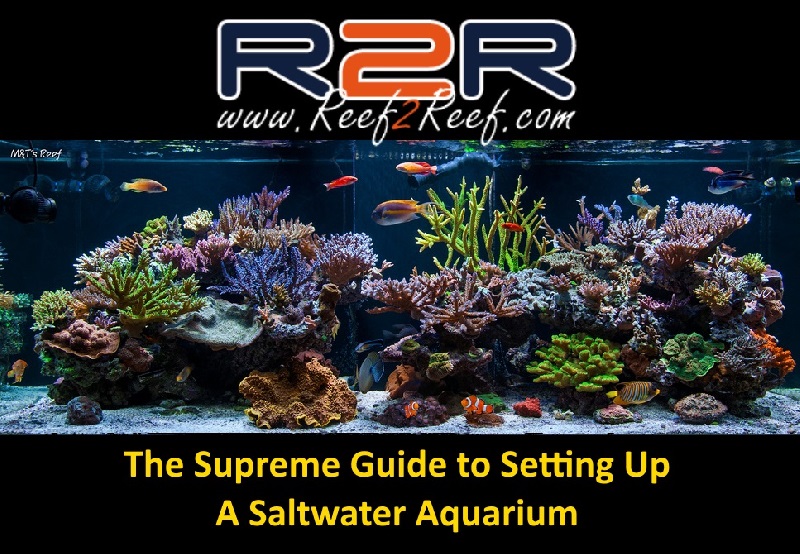Navigation
Install the app
How to install the app on iOS
Follow along with the video below to see how to install our site as a web app on your home screen.
Note: This feature may not be available in some browsers.
More options
You are using an out of date browser. It may not display this or other websites correctly.
You should upgrade or use an alternative browser.
You should upgrade or use an alternative browser.

Radion G5: Enabling Acclimation
Overview Acclimation is a feature available in Mobius that allows a user to dim their Radion Schedule for a set period of time. This is very beneficial for aquariums switching to Radions or when a...
When adding fish/cuc etc we first float bag in our tank or sump to temperature acclimate them so water temp the same then we acclimatise them putting bit of our tankwater into the bag or vessel we using or we drip accliminate,basically to get the livestock used to our water ,salinity, elements ,chemistry of water etc.
Also with corals we light aclimintise them usually starting off low in tank and gradually rise them higher and /or certain lights have a feature that dims the lights and slowly rises them for you.so the corals get a chance to get used to the new light conditions as may have been in lower or higher light intensities in previous tank.
Edit: nevery coral wants/needs different light so when i say we start off low in tank then rise them higher and higher,this depends on the coral and your lights and distance from lights and if coral a low light or medium or high light coral etc so dont so dont move all corals higher and higher till get to top rocks.
Need do research or ask questions where recommended placement be ^_^
Last edited:
Welcome to Reef2Reef! This is a great place to ask questions and learn, so you're right where you need to be! Plenty of knowledgeable and helpful people on these forums. I'm guessing it's been answered already, but once ammonia and nitrites are at zero and you have nitrates, your tank should be ready for the first fish to be added - don't add too many at once and overload the bioload. After you've had some fish for a little bit and some algae starts, go for a clean up crew - snails etc. Corals, depending on type, need time for the tank to stabilize more, so start with softies (mushrooms and zoas etc) and then move into lps and sps once alkalinity is stable. The types of tests you need will be dependent on the types of corals you're going to keep, but typically phosphates, nitrates, and ammonia are good tests to keep and then calcium, alkalinity, and anything you're going to dose are other tests to have (if keeping sps/lps corals). A good rule is always: don't dose if you don't test.I’ve taken the plunge in starting a saltwater tank. Right now I’m cycling my 40 gallon tank, but I’m not sure what tests I need to do weekly and other saltwater terminology ( dosing, cycling).
Welcome to Reef2Reef! This is a great place to ask questions and learn, so you're right where you need to be! Plenty of knowledgeable and helpful people on these forums. I'm guessing it's been answered already, but once ammonia and nitrites are at zero and you have nitrates, your tank should be ready for the first fish to be added - don't add too many at once and overload the bioload. After you've had some fish for a little bit and some algae starts, go for a clean up crew - snails etc. Corals, depending on type, need time for the tank to stabilize more, so start with softies (mushrooms and zoas etc) and then move into lps and sps once alkalinity is stable. The types of tests you need will be dependent on the types of corals you're going to keep, but typically phosphates, nitrates, and ammonia are good tests to keep and then calcium, alkalinity, and anything you're going to dose are other tests to have (if keeping sps/lps corals). A good rule is always: don't dose if you don't test
I’m going to try and get a few fish soon. I had my water tested and they told me the levels were good. How should I wait until I can add coral?Welcome to Reef2Reef! This is a great place to ask questions and learn, so you're right where you need to be! Plenty of knowledgeable and helpful people on these forums. I'm guessing it's been answered already, but once ammonia and nitrites are at zero and you have nitrates, your tank should be ready for the first fish to be added - don't add too many at once and overload the bioload. After you've had some fish for a little bit and some algae starts, go for a clean up crew - snails etc. Corals, depending on type, need time for the tank to stabilize more, so start with softies (mushrooms and zoas etc) and then move into lps and sps once alkalinity is stable. The types of tests you need will be dependent on the types of corals you're going to keep, but typically phosphates, nitrates, and ammonia are good tests to keep and then calcium, alkalinity, and anything you're going to dose are other tests to have (if keeping sps/lps corals). A good rule is always: don't dose if you don't test.
Welcome to R2R. You are going to want to test for Ammonia, Nitrite and Nitrate for the first while during your cycle. record all of your test. as you start to stock your tank keep it slow and test for those main 3 to look for any spikes. adding too many fish or corals at once can throw things out of balance. as you add more corals to your tank you are going to want to start testing for KH Cal and Mag your corals will use these up in your water column to help build their skeletal structure. the best thing you can do is keep things as consistent as possible with no big swings. oh yeah keep an eye on your PH that helps too. for testing it is best to try and do it at the same time of day if you can. Happy Reefing man.


Thanks for the adviceWelcome to R2R. You are going to want to test for Ammonia, Nitrite and Nitrate for the first while during your cycle. record all of your test. as you start to stock your tank keep it slow and test for those main 3 to look for any spikes. adding too many fish or corals at once can throw things out of balance. as you add more corals to your tank you are going to want to start testing for KH Cal and Mag your corals will use these up in your water column to help build their skeletal structure. the best thing you can do is keep things as consistent as possible with no big swings. oh yeah keep an eye on your PH that helps too. for testing it is best to try and do it at the same time of day if you can. Happy Reefing man.

WELCOME!
Here are some resources you may like
If you like to read

 www.reef2reef.com
www.reef2reef.com
If you prefer video’s. This video series is “5 minute guide”, good info. BRS TV has lots of different series.
Here’s a getting the most out of Reef2Reef link

 www.reef2reef.com
www.reef2reef.com
Here are some resources you may like
If you like to read
The Supreme Guide To Setting Up A Saltwater Reef Aquarium
This article was sponsored by @MarineDepot at www.marinedepot.com. Introduction The marine environment is one of the most complex systems on the planet. The aquarium you are about to set up is only a tiny sliver of the vast ocean, but it is no...
 www.reef2reef.com
www.reef2reef.com
If you prefer video’s. This video series is “5 minute guide”, good info. BRS TV has lots of different series.
Here’s a getting the most out of Reef2Reef link

Tips for Getting the Most From the Reef2Reef Forum
Tips for Getting the Most From the Reef2Reef Forum Clown Triggerfish, Balistoides conspicillum. Photo is from the Reef2Reef archives, courtesy of @Darryl, ©2019, All Rights Reserved. If you're new to online discussion forums or just new to Reef2Reef, this article is for you. Much of the...
 www.reef2reef.com
www.reef2reef.com
Belated welcome to the salty family!!


Thank youBelated welcome to the salty family!!

revhtree
Owner Administrator
View Badges
Staff member
Super Moderator
Reef Squad
Partner Member 2024
Excellence Award
RGB
Photo of the Month
Article Contributor
R2R TV Featured
Hospitality Award
Article Administrator
Black Friday Sponsor
Partner Sponsor 2023
Industry Professional
My Aquarium Showcase
- Joined
- May 8, 2006
- Messages
- 47,740
- Reaction score
- 86,912
Welcome to your new home for saltwater reef aquarium resources and fun! Welcome to the family! 

|Frank|
Valuable Member
View Badges
Tampa Bay Reef Keepers
West Palm Beach Reefer
Hospitality Award
Ocala Reef Club Member
MAC of SW Florida
My Tank Thread
Welcome to the forum!!
Make sure that your filters are in place and properly working. You will need them working once you start to cycle your saltwater tank. It is even better if you can use cycled filters that already have some beneficial bacteria in them. It can help speed up the process of cycling.
Welcome! looking forward to seeing pictures of your reef!
Welcome to Reef2Reef! We are glad you are here.
Welcome to Reef2Reef! We are glad you are here.I’ve taken the plunge in starting a saltwater tank. Right now I’m cycling my 40 gallon tank, but I’m not sure what tests I need to do weekly and other saltwater terminology ( dosing, cycling).
Hello and welcome to R2R. We're glad to have you.
Similar threads
- Replies
- 6
- Views
- 125

















